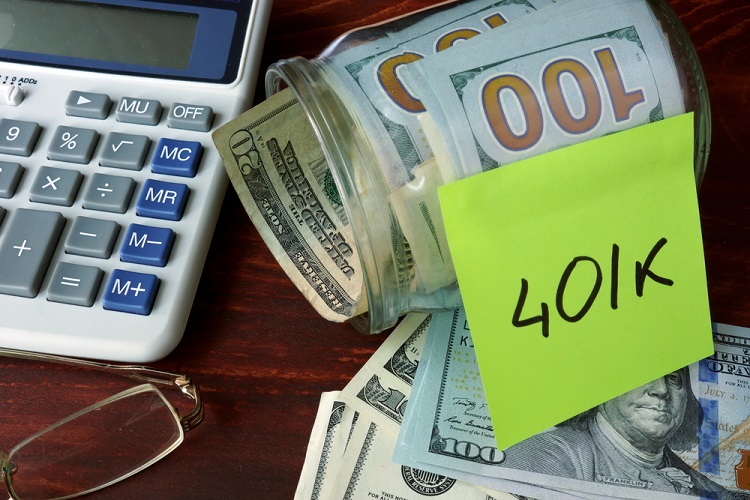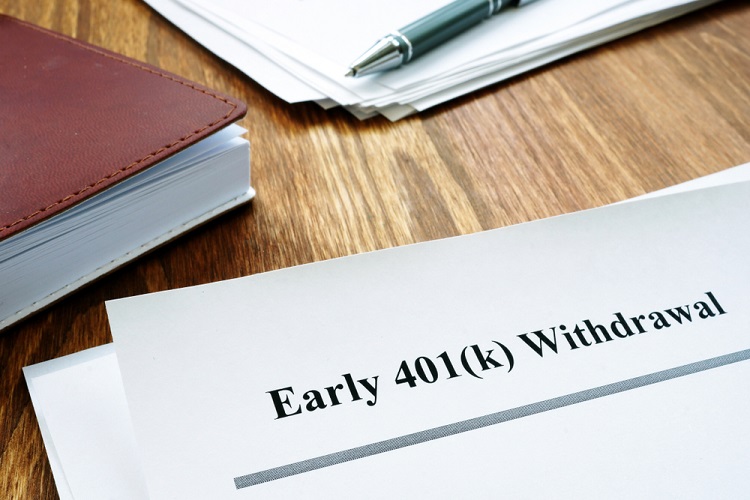Why You Should Reconsider Tapping Into Your 401(k) To Pay Your Bills
Allowing Americans to withdraw from their 401(k) funds penalty-free when the pandemic struck may have sounded like a decent idea at the time. The option to access retirement assets gave some much-needed short-term security for those whose jobs and finances were in flux.
According to Suze Orman, author and host of the Women & Money Podcast, enabling people to take from their future selves was a grave error that many people will rue once they reach retirement.
“If you can’t pay your bills while you have a paycheck coming in, how are you going to pay for those exact same bills later on in life when you no longer have a paycheck coming in?” she said in an interview.

What Happened
It became simpler to withdraw funds from one’s 401(k) or IRA according to the CARES Act, a pandemic relief measure that was passed in March 2020. People were given three years to repay withdrawals of up to $100,000 from their accounts without incurring the usual 10% early withdrawal penalty or tax payment.
Americans who urgently needed money could tap into their 401(k) in a way that they otherwise wouldn’t have been able to. According to CNBC, between April 6 and June 26, over 20% of all 401(k) withdrawals in the spring of 2020 were connected to the pandemic.
More than 700,000 customers reportedly took withdrawals from their 401(k) or 403(b) plans at Fidelity Investments, the largest 401(k) plan provider in the United States, according to CNBC. Over 18,000 people requested the whole $100,000, but the typical request was only $5,000. The How America Saves study from Vanguard in 2021 also revealed that in 2020, more than 7% of Americans withdrew money from their 401(k) or 401(b) accounts, which are identical to 401(k)s but only open to not-for-profit organizations.
But according to Orman, withdrawing funds from such retirement accounts at that time has ultimately resulted in consumers paying a lot more in the long term.

Hidden Fees Of Withdrawing From Your 401(k)
According to Orman, those who withdrew funds from their accounts at that time missed the opportunity to have that money work for them during the record market rises that followed the 2020 market lows.
Reinvesting that money in your 401(k) doesn’t seem all that enticing anymore now that the stock market is in bear territory and there is a lot more economic uncertainty.
In fact, according to recent research from Fidelity, market volatility has caused the average 401(k) balance to fall by 23% year after year.

Don’t Start Taking Withdrawals From Your 401(k)
Aside from missing out on historic gains, withdrawing from your 401(k) could leave you susceptible if you ever need to declare bankruptcy, according to Orman, because 401(k)s are protected against bankruptcy and cannot be touched if you do.
According to Orman, legislators have enabled many people to jeopardize their financial future by making it simple to withdraw money from those accounts.
However, Orman is also aware of the worry that uncertainty inspires and how those emotions might affect how you manage your finances. At the moment, there is a lot of ambiguity. “I have feelings for them. I understand the fear they’re going through,” she says. “I have compassion for them.”
